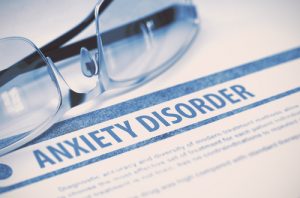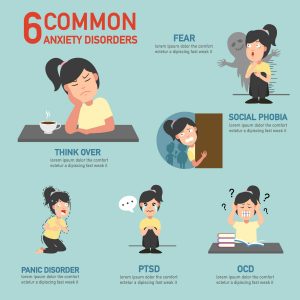Anxiety is a common emotion for all of us, but for some it can be much more intense. Where some people experience it as a mild discomfort and nervousness, for more than 3 million Americans it is a chronic and serious condition that seriously impacts their life. But that figure only accounts for adults…it doesn’t look at teenagers who face the same struggles.
Anxiety in teenagers can be a difficult issue to address. Up to 10% of those under the age of 18 suffer with it, with many sufferers even under the age of 12. If left untreated anxiety has been linked to a number of other serious conditions such as depression, mood disorders and even suicidal ideation and drug addiction. But what can be done to fight against it?
TEENS WITH ANXIETY WILL SHOW THE FOLLOWING TRAITS AND PHYSICAL SYMPTOMS:
- Difficulty sleeping
- General nervousness
- Twitchy affect
- Irritability
- Fidgeting
- Difficulty concentrating
- Refusal to engage socially
- Isolation
- Sudden changes in habits
- Fatigue or tiredness
- Complaints of breathing problems, tightness in chest or muscle pains
- Muscle spasms
- Heart palpitations
- Panic attacks
- Acting out
- Stomach problems
- Decline in grades
- Breaking of social circle
- Irrational anger or upset
- Sweating palms
- Dry mouth
- Appetite changes
EMOTIONAL SYMPTOMS OF ANXIETY:
- Nervous
- Scared
- Angry
- Restless
- Depressed
- Isolated
- Panicked
- That there is a sense of doom or something bad about to happen
There is a common misconception that anxiety is merely a feeling of being anxious, often in difficult situations. That is not the case. Anxiety is a serious mental illness that can cause debilitating effects for those who suffer from it. For teens, the problem can be especially severe as they are faced with other common associated illnesses, such as depression.
Anxiety comes with four different forms:
- General – In general anxiety the person in question is more likely to become stressed or upset over everyday life events. It can be sparked by anything, such as feeling overwhelmed and unable to cope.
- Phobias – A reaction to a specific irrational fear or situation, where the sufferer is unable to healthily cope when in the presence or threat of that fear.
- Social – A condition where social situations trigger severe emotional reactions, such as being in a crown or confronted with the need to interact with others.
- Panic – A disorder that causes sudden and intense panic for no specific reason, often leading to severe physical reactions such as difficulty breathing and dizziness.
STATS ON ANXIETY IN THE UNITED STATES AMONG TEENS
Anxiety disorders are the most prevalent of all mental illnesses within the United States. Up to 10% of teens and 40% of adults suffer from this condition, many of which require intensive treatment to deal with the problem.
The The Journal of Clinical Psychiatry found that people with anxiety disorders often suffer from physical symptoms. These symptoms can frequently mimic other conditions, such as a heart attack. That leads to them going to emergency rooms, spending large sums of money to treat what turns out to be a severe emotional reaction.
In addition to this problem is the reaction of the patient and loved ones. Seeing a child with a panic attack is a terrifying event. Parents often feel helpless and frightened, unable to help their teen to breath, calm down and cope. This leads to a great deal of strain in the home, with the parents unsure of where to turn.
What You Can Do For Your Teen With Anxiety
Gather credible resources to educate yourself for your teens sake.
Find a therapist that your teen can rely on and trust to meet with regularly.
Explore medication options for helping your teen manage their anxiety and accompanying disorders.
TEENS WITH ANXIETY CAN FIND RELIEF BY:
- Attending therapy sessions to talk through difficult feelings.
- Taking medication designed to alleviate anxiety and depression.
- Addressing core triggers that cause anxiety responses.
- Changing dietary habits to promote overall health.
- Getting exercise, which has been shown to improve anxiety.
- Meditation and other calming activities.
HELP YOUR TEEN NOW HELPS PARENTS OF TEENS WITH ANXIETY
This is a difficult situation for any family to find themselves in. Anxiety can be frightening to observe and parents often feel helpless as they watch their teen struggling to manage such overwhelming feelings. As the problem persists they may not know where to turn for help, or which steps to take. What they need is someone in their corner that can help guide them through this difficult time.
Help Your Teen Now is an education resource where industry experts assist you and your family in making the best decisions for your teenager’s therapeutic treatment. Their fully trained staff can help you choose the right treatment programs, discover programs in your area and point you towards the tools that will best allow you to support your child as they navigate their mental health struggles. If you have been facing this trial in your home, you no longer have to do it alone. Let Help Your Teen Now assist your family in finding the best path for healing and hope.



